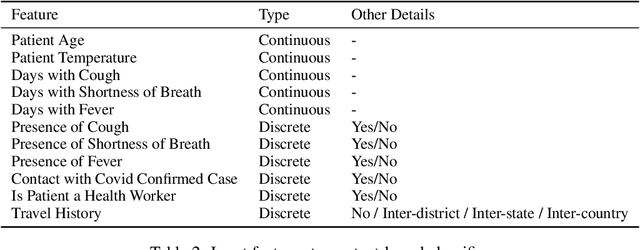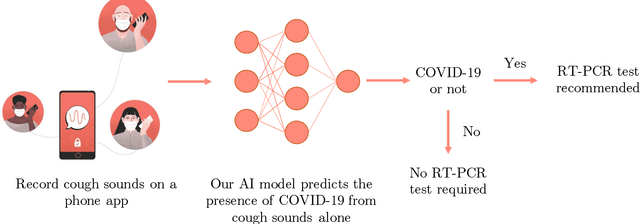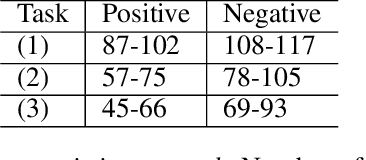Amrita Mahale
Analyzing and Predicting Low-Listenership Trends in a Large-Scale Mobile Health Program: A Preliminary Investigation
Nov 13, 2023Abstract:Mobile health programs are becoming an increasingly popular medium for dissemination of health information among beneficiaries in less privileged communities. Kilkari is one of the world's largest mobile health programs which delivers time sensitive audio-messages to pregnant women and new mothers. We have been collaborating with ARMMAN, a non-profit in India which operates the Kilkari program, to identify bottlenecks to improve the efficiency of the program. In particular, we provide an initial analysis of the trajectories of beneficiaries' interaction with the mHealth program and examine elements of the program that can be potentially enhanced to boost its success. We cluster the cohort into different buckets based on listenership so as to analyze listenership patterns for each group that could help boost program success. We also demonstrate preliminary results on using historical data in a time-series prediction to identify beneficiary dropouts and enable NGOs in devising timely interventions to strengthen beneficiary retention.
Impact of data-splits on generalization: Identifying COVID-19 from cough and context
Jun 05, 2021



Abstract:Rapidly scaling screening, testing and quarantine has shown to be an effective strategy to combat the COVID-19 pandemic. We consider the application of deep learning techniques to distinguish individuals with COVID from non-COVID by using data acquirable from a phone. Using cough and context (symptoms and meta-data) represent such a promising approach. Several independent works in this direction have shown promising results. However, none of them report performance across clinically relevant data splits. Specifically, the performance where the development and test sets are split in time (retrospective validation) and across sites (broad validation). Although there is meaningful generalization across these splits the performance significantly varies (up to 0.1 AUC score). In addition, we study the performance of symptomatic and asymptomatic individuals across these three splits. Finally, we show that our model focuses on meaningful features of the input, cough bouts for cough and relevant symptoms for context. The code and checkpoints are available at https://github.com/WadhwaniAI/cough-against-covid
Cough Against COVID: Evidence of COVID-19 Signature in Cough Sounds
Sep 23, 2020



Abstract:Testing capacity for COVID-19 remains a challenge globally due to the lack of adequate supplies, trained personnel, and sample-processing equipment. These problems are even more acute in rural and underdeveloped regions. We demonstrate that solicited-cough sounds collected over a phone, when analysed by our AI model, have statistically significant signal indicative of COVID-19 status (AUC 0.72, t-test,p <0.01,95% CI 0.61-0.83). This holds true for asymptomatic patients as well. Towards this, we collect the largest known(to date) dataset of microbiologically confirmed COVID-19 cough sounds from 3,621 individuals. When used in a triaging step within an overall testing protocol, by enabling risk-stratification of individuals before confirmatory tests, our tool can increase the testing capacity of a healthcare system by 43% at disease prevalence of 5%, without additional supplies, trained personnel, or physical infrastructure
 Add to Chrome
Add to Chrome Add to Firefox
Add to Firefox Add to Edge
Add to Edge